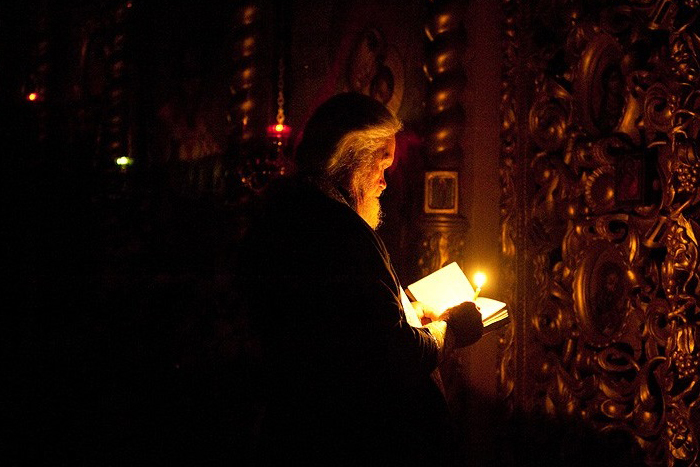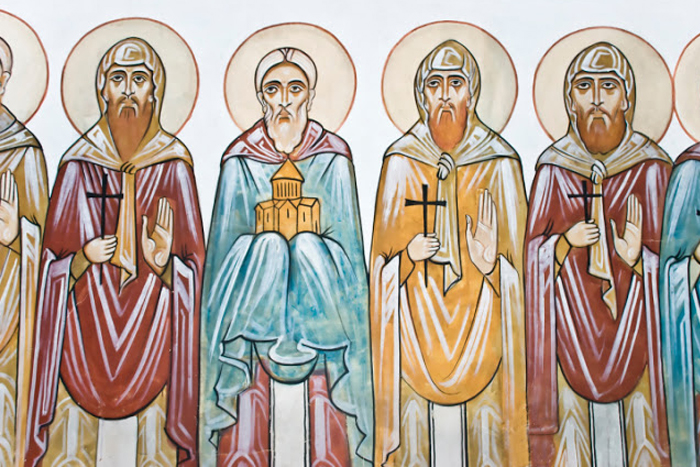
Mark 7: 14-24
Gal. 6: 2-10
The Lord said, “… there is nothing outside the man which can defile him if it goes into him; but the things which proceed out of the man are what defile the man.” “For from within, out of the heart of men, proceed the evil thoughts…”
The heart is like the center of the cross. It is most intangible, and yet most precious. It is where the path to either life or death begins. The heart is a stronghold that can withstand any onslaught from the outside, for literally “nothing”, as the Lord says, “can defile it.” At the same time, in spite of all goodness, the heart may also emit streams of impurity.
In the fourth century, there was a controversy in the church over the following question: what is more important for a person’s salvation, his free self-determination or God’s saving grace? Some argued in favour of freedom, while others disagreed insisting that only grace is salvatory.
Indeed, there are places in Scripture proving the unconditional meaning of grace. “…For it is God who works in you, both to will and to work for his good pleasure.” (Phil. 2:13).
Yet, today’s “pericope” stresses the unconditional meaning of the heart with its freedom and responsibility; suggesting that a person should rely only on himself. “…Let every man prove his own work, and then shall he have rejoicing in himself alone, and not in another.” It sounds as if man, his work and the fruit of this work exist on standalone basis in the world. “…Whatever a man sows, this he will also reap.”
The truth is that neither God can save a person against his will, nor can you yourself be saved without God’s grace. Just like the saving grace, free will is of ultimate importance. Some may say, “How can this be? Omnipotence, limited by human freedom, is not omnipotence; just as freedom, limited by God’s omnipotence, is not freedom.” But that is just sophistical reasoning. Choose God freely, go out to meet Him, and His omnipotence will be revealed to you.
Similarly, all the logical contradictions of the Holy Scriptures exist only in the abstract mind, and are very easily resolved in practice. So today, for example, we first read: “Each one will bear his own load,” and immediately we see the opposite: “Bear one another’s burdens.” The fact is that the Word of God is addressed to you as the only free and responsible listener. Everything is given to you. You are capable of anything, and therefore do not count on anyone and do not look back: no one will bear your burden. But you carry the burden of your neighbor!
For us to determine our freedom more decisively, let us first follow the advice that the church gives us in the burial service: “Come, O brethren, let us see the dust and ashes in the grave from which we were formed.” This is how great the omnipotence of God is. This is what He was able to create us from. And this, on the other hand, is where the free rejection of God leads.
Translated by The Catalogue of Good Deeds
Source: https://azbyka.ru/otechnik/Vyacheslav_Reznikov/propovedi-na-kazhdyj-den/23_3





Thanks.
perfect quote. I read it up to every line.